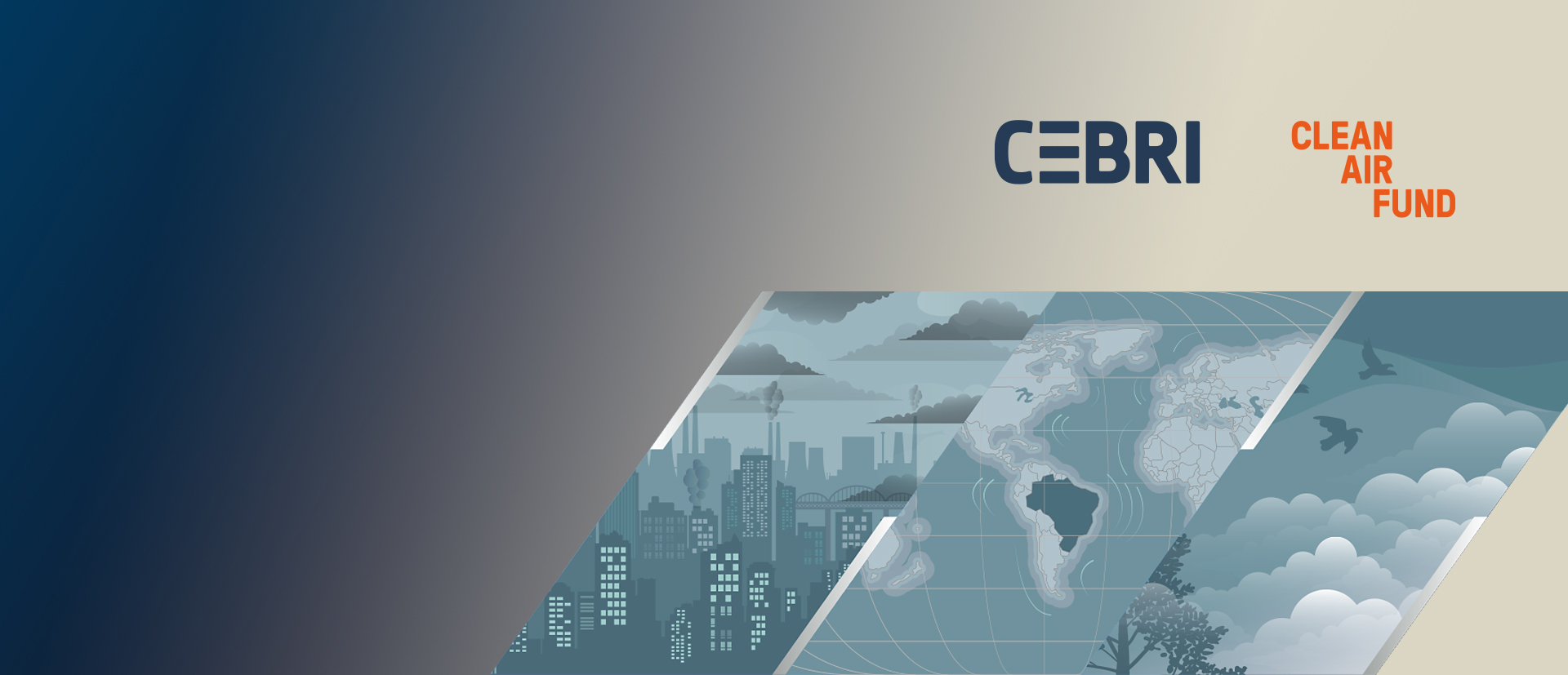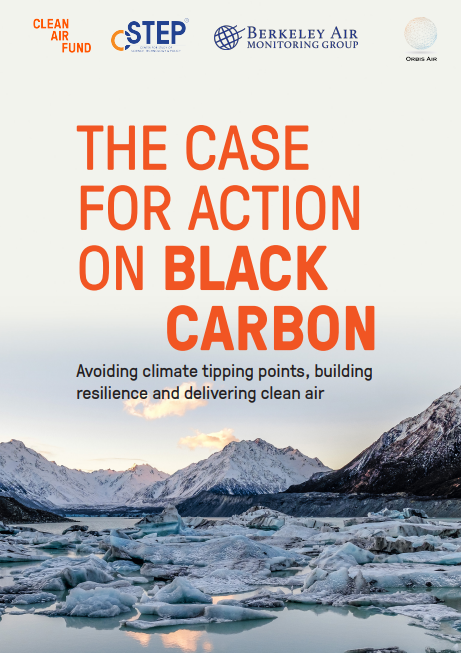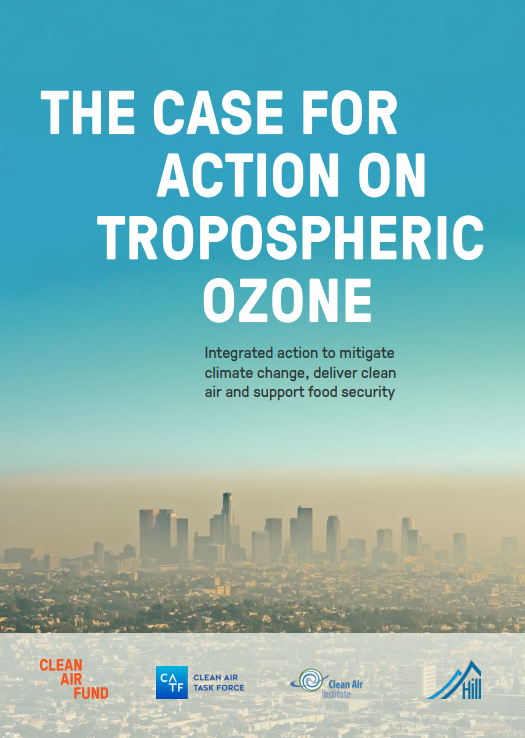CEBRI and Clean Air Fund launch project to expand discussions and actions on air quality
- 08 october 2025

The world faces interconnected environmental and climate challenges that require integrated responses grounded in international cooperation. It is essential to discuss climate change while also addressing air quality: air pollution is directly linked to global warming, especially in scenarios involving wildfires, urban emissions, and industrial activities. By hosting COP30 in the Amazon, Brazil has the opportunity to lead negotiations that incorporate this crucial agenda.
The advance of wildfires in Brazil has led cities such as Porto Velho and Sao Paulo to record some of the worst air quality levels in the world in 2024. Large urban populations have directly and significantly felt the economic and health impacts caused by wildfire smoke.
Increasing episodes of this kind, both domestically and abroad, reinforce the urgency of highlighting air quality in climate discussions, bringing together key actors in the global environmental agenda.
The Project
To contribute to this agenda, CEBRI and the Clean Air Fund are launching a project to strengthen the debate on air quality and the impacts of short-lived climate pollutants on the environment and public health. The initiative aims to:
- Produce and disseminate materials to expand awareness and understanding of the topic;
- Promote meetings and discussions with political leaders and experts from relevant organizations across different sectors;
- Highlight the importance of including air quality and short-lived climate pollutants in the COP30 agenda;
- Support the formulation of public policies and international commitments to reduce short-lived climate pollutants and improve air quality.
What are short-lived climate pollutants (SLCPs)?
Also known as short-lived climate pollutants (SLCPs), these are gases that remain in the atmosphere for a shorter time than carbon dioxide (CO2) but have a high potential for warming the climate. The main SLCPs include methane (CH4), black carbon (soot), tropospheric ozone (O3), and hydrofluorocarbons (HFCs).
These pollutants are generated by factors such as wildfires, diesel transportation, intensive agriculture, and industrial processes.
Why integrate air quality into the climate agenda?
Reducing air pollution can deliver rapid and tangible benefits: improved public health, lower greenhouse gas emissions, and advances in environmental protection. Highlighting this issue at COP30 in Belem represents an opportunity for Brazil to lead a global discussion that is scientifically robust, socially just, and politically feasible.
Advancing this theme in Belem means strengthening the role of SLCPs in Nationally Determined Contributions (NDCs), mitigation and adaptation plans, and climate finance mechanisms.
Discover all the initiatives of the project below.
Policy Papers
The Case for Action on Black Carbon
This briefing by Clean Air Fund, the Center for Study of Science, Technology and Policy (CSTEP), Berkeley Air Monitoring Group and Orbis Air, and translated by CEBRI, highlights the importance of reducing black carbon emissions, alongside deep decarbonisation.
Read HERE.

The Case for Action on Tropospheric Ozone
This briefing by Clean Air Fund, the Center for Study of Science, Technology and Policy (CSTEP), Berkeley Air Monitoring Group and Orbis Air, and translated by CEBRI, presents recommendations and measures that can help mitigate climate change in the coming decades, improve air quality for billions of people, and strengthen global food security.
Read HERE.

EVENTS
August 19 | Dinner Dialogue with COP30 Presidency and key embassies in Brasília
Hosted by Clean Air Fund and CEBRI, this event brought together leaders from the COP30 Presidency, key embassies, and Brazilian ministries to advance the agenda on super pollutants and air quality at COP30. The dialogue spotlighted the urgent impacts of super pollutants such as black carbon and tropospheric ozone on climate change, public health, and economic stability.
EVENT PUBLICATION
Factsheet "Opportunities for leadership on super pollutants at cop30". Read HERE
August 26 | Tackling forest fires and air pollution: Leveraging solutions on the road to COP30
Hosted by Clean Air Fund and CEBRI, this roundtable brought together researchers, civil society leaders, and government stakeholders to highlight the importance of integrating air quality and black carbon into forest agendas in the lead-up to COP30.
EVENT PUBLICATION
Factsheet "Tackling forest fires and air pollution: Leveraging solutions on the road to COP30". Read HERE
October 14 | Advancing Super Pollutant Action Towards COP30
Hosted by Clean Air Fund and CEBRI, this event discussed the importance of policies for tackling super pollutants (or Short-Lived Climate Pollutants-SLCP, i.e. black carbon, tropospheric ozone, methane), exchanging international experiences in this area and opportunities for cooperation at COP30 and beyond. The event brought together key leads from relevant Brazilian ministries and international delegations of countries with expertise in super pollutant plans and air quality policies.
EVENT PUBLICATION
Factsheet "Policies on super pollutants and air quality: International collaboration towards COP30 and beyond". Read HERE
November 11 | Networking Reception on Air Pollution and Health Impacts
November 12 | Leveraging COP actions to tackle super pollutants and their impacts on air quality
This high-level event hosted by CEBRI and the Clean Air Fund will highlight opportunities for tackling short-lived climate pollutants (SLCPs or “super pollutants”, such as methane, black carbon and tropospheric ozone), which cause severe impacts on climate, health and the economy. It will bring together key leads especially from governments, civil society and the private sector to recommend actions for COP30 to advance the reduction of super pollutants and their effects. The event will showcase international best practices and underline opportunities for cooperation on this agenda at COP30 and beyond.
